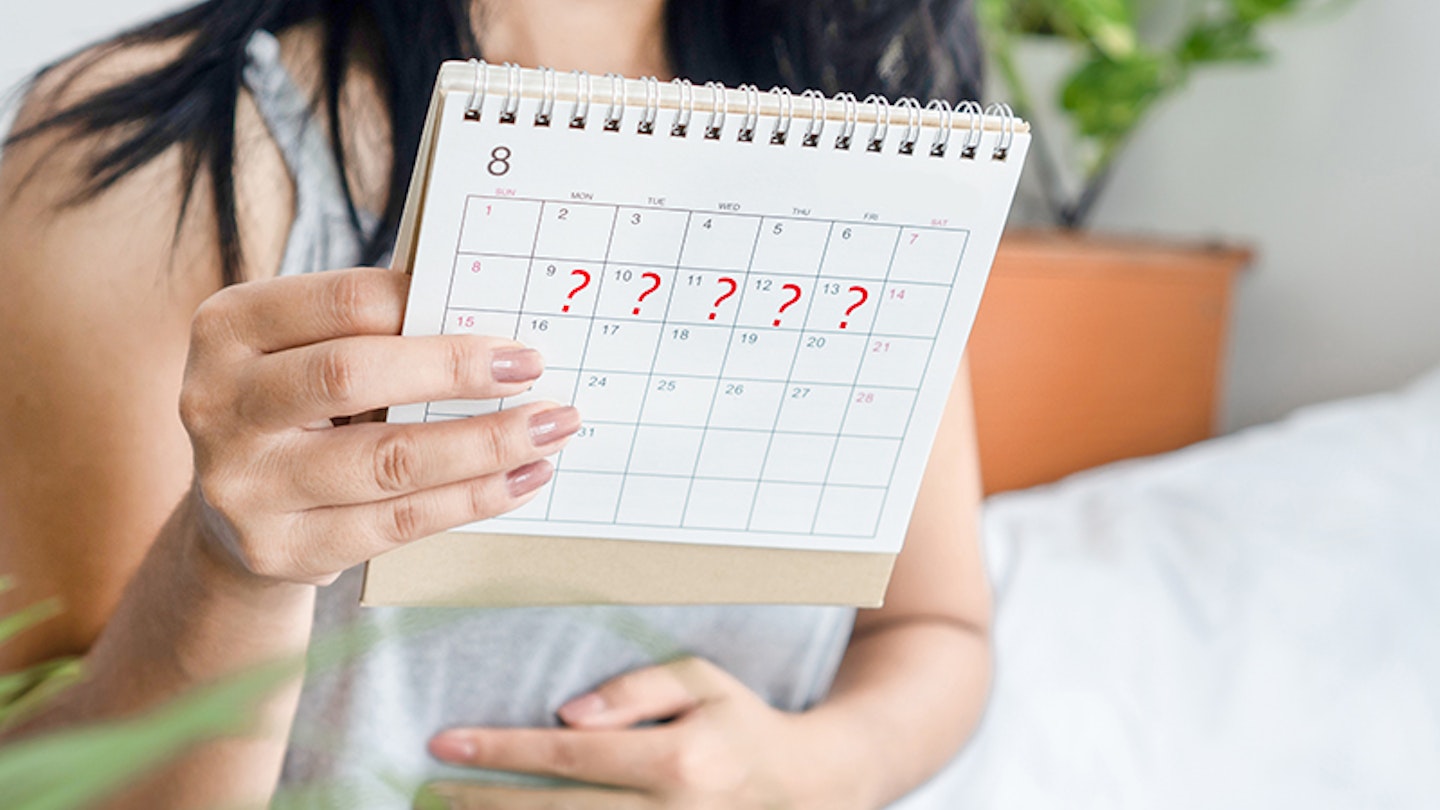When you're trying to conceive, chances are you'll be paying a lot more attention to your ovulation cycle than you may have before. Particularly if you don't get pregnant quickly, perhaps you've turned to ovulation calculators and test kits or have become a pro at figuring out your ovulation symptoms.
You may think that if you get your period you'll be ovulating as normal too, but this may not be the case. In fact, if you've been unlucky conceiving but are still having your period, it may be that you're not actually ovulating. This is called anovulation.
If you think you might be experiencing this, we've researched whether there are symptoms to look out for and whether it can be treated.
What is anovulation?
Simply put, anovulation is when your body does not release an egg during your menstrual cycle. It's a common cause of infertility, as you've essentially skipped your ovulation cycle.
Anovulation can happen to women occasionally, and the likelihood is you won't even notice as your body will still have a period. However, if you begin to regularly anovulate, this could reduce your chances of getting pregnant.
Do you get your period if you didn't ovulate?
In a normal ovulation cycle, a mature egg is released from the ovarian follicle from one of two ovaries. It then travels down the fallopian tube, which links the ovary and the womb (uterus), where it stays for up to 24 hours so it can be fertilised.
The release of the egg produces progesterone – which helps maintain regular periods, but if no egg is released this can lead to a hormone imbalance of progesterone, which can trigger heavy bleeding, often mistaken for a period.
Symptoms of anovulation
As mentioned above, it's possible that you have already experienced anovulation without realising it, as sometimes there are no anovulation symptoms. However, if you are struggling to conceive there are some signs of ovulation you can look out for.
Signs of anovulation:
• Irregular periods
• Heavy or light bleeding with periods
• Missing periods
• Lack of ovulation symptoms
• Irregular basal body temperature (BBT)
• Sore or painful breasts
Obviously, these are common symptoms for a number of other conditions too, so it may not necessarily be anovulation.
What causes anovulation?
There are a range of potential reasons for anovulation, with the key cause being hormones – fluctuations or sudden changes in hormone levels can trigger anovulation, for example it's quite common during puberty and menopause, or if you have Hypothalamus or pituitary gland dysfunction.
Further causes of anovulation include:
• Obesity
• Low body weight
• Excessive exercise
• Stress
• Polycystic ovary syndrome
• Diminished ovarian reserve (DOR)
Can stress cause anovulation?
Clearblue says, "There is some connection between extreme levels of chronic stress and fertility." They say, "When you’re suffering from serious chronic stress two things can happen that can affect your chances of getting pregnant: A decreased sex drive, (or) Anovulation."
Clearblue explains that; "Ovulation depends on two hormones that are produced in the pituitary gland – follicle-stimulating hormone (FSH) and luteinizing hormone (LH)."
They also say, "Excess physical or emotional stress can affect the pituitary gland and disrupt the production of these hormones, so the egg doesn’t get released." This means that it's not only excess mental stress that can cause anovulation, but also physical stress on your body, like over-exercising.
Diagnosing anovulation and potential treatment
For many people who are trying to conceive one of the main questions will be - how do you know if you're not ovulating? More than 8 in 10 couples, where the woman is under 40, will conceive naturally within a year of having regular unprotected sex. If it's been over a year, the woman is over 36, or you have a health issue that could affect your fertility, the NHS recommend going to your GP.
A blood test can be done to check if you're ovulating. Your doctor may also suggest an ultrasound to check your ovaries, womb (uterus) and fallopian tubes.
If you're wondering if there is an anovulation cure, there is a variety of anovulation treatment you can try.
According to the NHS, the most common fertility treatments include:
• Clomifene – encourages the monthly release of an egg (ovulation) in women who do not ovulate regularly or cannot ovulate at all
• Tamoxifen – an alternative to clomifene that may be offered if you have ovulation problems
• Metformin – is particularly beneficial for women who have polycystic ovary syndrome (PCOS)
• Gonadotrophins – can help stimulate ovulation in women, and may also improve fertility in men
• Gonadotrophin-releasing hormone and dopamine agonists – other types of medicine prescribed to encourage ovulation in women
If medicinal assistance proves unsuccessful, surgical procedures or intrauterine insemination (IUI) and in vitro fertilisation (IVF) will be the next step.
Can you get pregnant when you're not ovulating?
It is possible to get pregnant outside of your official ovulating window, during your ovulation cycle as you may be experiencing late ovulation. However, if you don't ovulate, ie release an egg, then you can't get pregnant.
Don't give up hope yet though - Cleveland Clinic say "The outlook for anovulation depends on the cause of your anovulation. In most cases, lifestyle changes, fertility drugs or medication that treats the underlying health condition can treat anovulation."
However, in the case of perimenopause, the hormonal changes that are a natural occurrence with menopause make anovulation more difficult to treat, they say, but you can still discuss treatment for your symptoms with your healthcare provider.
Stephanie Spencer is the Deputy Digital Editor of Motherandbaby.com. With a digital publishing career spanning over 10 years, starting out as an editorial assistant on medical journals and moving onto become a news writer and features editor, Stephanie started at Bauer Publishing in 2019 and began working for Mother&Baby in 2020.
